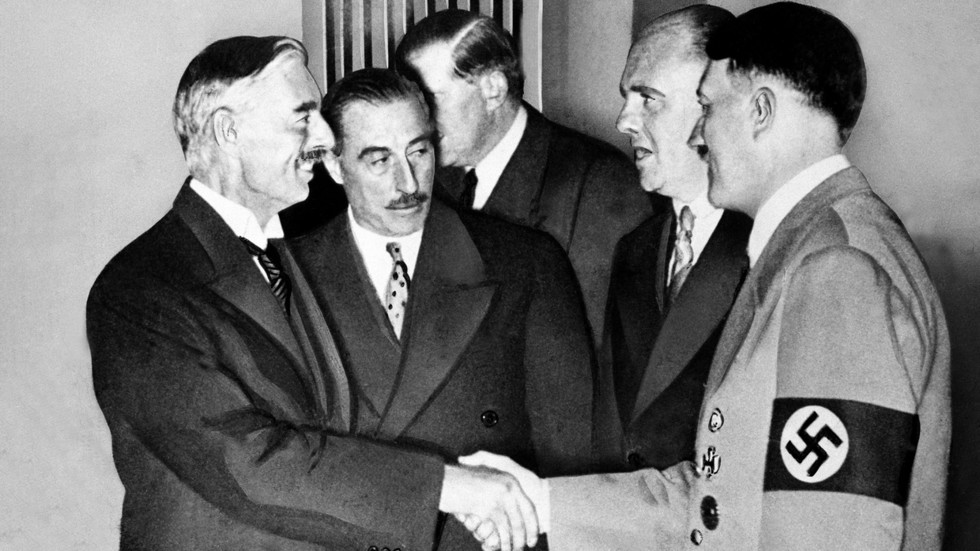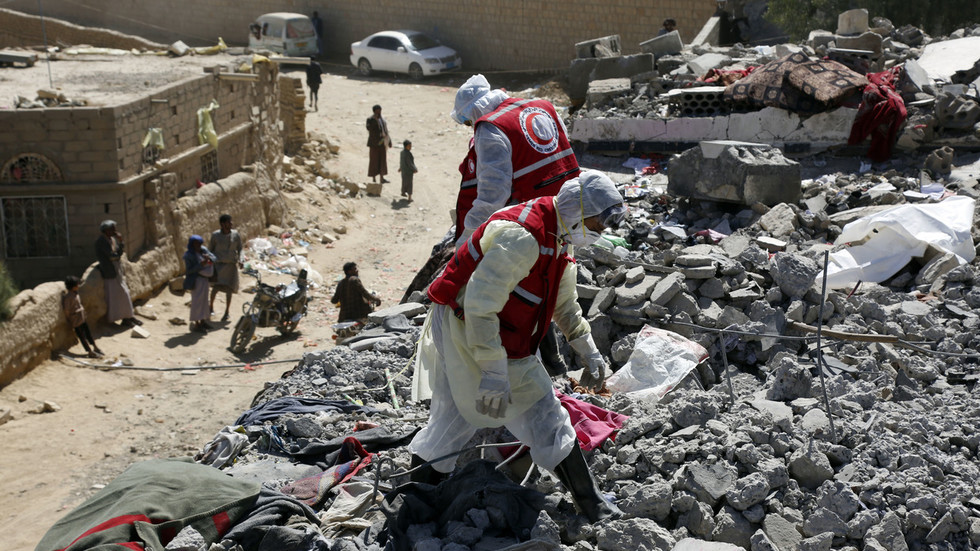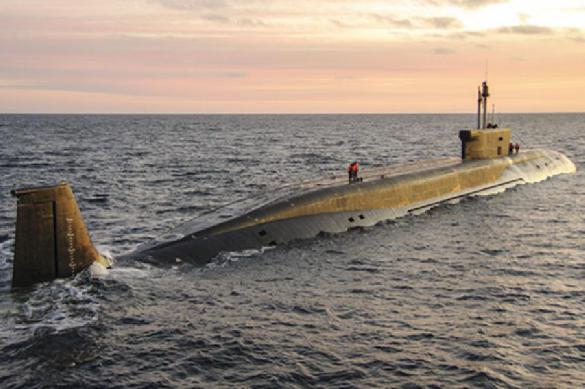[ad_1]
As his aeroplane got here in to land on Heston Aerodrome on a gentle September night, the Prime Minister might see that the airfield was awash with the world’s press and tons of of individuals ready to greet him. Neville Chamberlain believed that he had in his hand an settlement that might stop Europe from descending into battle for the second time in a era.
As he stepped onto the runway, with the crowds cheering wildly, Chamberlain addressed these in attendance. He stated, “This morning I had one other speak with the German Chancellor, Herr Hitler, and right here is the paper which bears his title upon it in addition to mine. A few of you, maybe, have already heard what it incorporates however I might similar to to learn it to you: … ‘We regard the settlement signed final evening and the Anglo-German Naval Settlement as symbolic of the will of our two peoples by no means to go to battle with each other once more’.”
Later that night, Chamberlain travelled to Buckingham Palace for an viewers with King George VI. The gang that had gathered exterior the palace was so massive and excitable that the King invited the Prime Minister to hitch him and the Queen on the balcony, which was remarkable, to take the plaudits. Chamberlain then travelled again to 10 Downing Road, the place he gave one other speech from the window and uttered the well-known phrase, “I imagine it’s peace for our time.”
The date was September 30, 1938 and Chamberlain had simply returned from Munich. While there, he had negotiated a take care of Adolf Hitler to permit Nazi Germany to include the Czechoslovakian Sudetenland into the Third Reich. In return, he believed he had assured peace, a minimum of in the meanwhile.
By no means had a Prime Minister been so in style, not solely together with his personal folks, but in addition all over the world. Congratulations for his preserving “peace for our time” got here from throughout the globe. The prime ministers of Canada, Australia, and South Africa supplied their help, as did the American president, Franklin D. Roosevelt, who known as Chamberlain a “good man.”
Though historical past has confirmed Chamberlain’s statements incorrect, it was seen on the time as an ideal victory not just for the British prime minister, however for the democratic world. Since then, nevertheless, ‘Munich’ has turn into a by-word for capitulation and disgrace, and Chamberlain tarred as a weak, silly, unsuspecting lackey of Europe’s worst dictator.
Chamberlain’s profession, nevertheless, is as soon as once more coming underneath microscope because of a brand new movie, ‘Munich: The Fringe of Battle’, which was launched in British cinemas final week and lands on Netflix on January 21. Though the movie is a piece of fiction, tailored from Robert Harris’ novel, ‘Munich,’ the sympathetic portrayal of Chamberlain by Jeremy Irons is resulting in a reevaluation of the much-maligned former prime minister.
Chamberlain was born right into a political household. He was the second son of Joseph Chamberlain, Britain’s most iconic politician of the late Victorian and Edwardian period. His older brother was Austen Chamberlain, who briefly led the Conservative Occasion within the early Nineteen Twenties and have become International Secretary later in that decade. He then served because the First Lord of the Admiralty within the early Nineteen Thirties earlier than his retirement and loss of life in 1937.
In distinction, a political profession was not deliberate for the youngest of the Chamberlain clan. As an alternative, it was believed {that a} life in enterprise lay forward. Nonetheless, Chamberlain grew to become a neighborhood councillor in 1911 and Lord Mayor of Birmingham in 1915, a job his father had beforehand occupied. He entered the Home of Commons in 1918 and, by the mid-Nineteen Twenties, Chamberlain had turn into a reforming Minister of Well being.
He actually made his title within the early Nineteen Thirties, guiding Britain via the Nice Melancholy as a frugal Chancellor of the Exchequer, and in doing so grew to become the “inheritor obvious” when the ageing Prime Minister, Stanley Baldwin, selected to retire. This got here in Could 1937 and Chamberlain had achieved what his father and older brother had not, efficiently making it to the highest of “the greasy pole.”
Sadly for Chamberlain, he was unable to utilise his spectacular administrative expertise, as his time in workplace was dominated by his dealings with Europe’s belligerent dictators – Adolf Hitler and Benito Mussolini – each of whom have been bent on army enlargement. So, quite than coping with the UK’s monetary deficit and housing shortages, for which he was amply suited, within the first 18 months of his premiership, Chamberlain was pressured to withstand the Spanish Civil Battle, the Anschluss, and Hitler’s designs on Czechoslovakia.
Historical past has not been form to Chamberlain. He’s typically portrayed as a naive idiot who was all too keen to imagine the empty guarantees of Hitler. His coverage of appeasement grew to become a byword for weak spot, gullibility, and finally disgrace. However is that this actually true, or is it a case of 20/20 hindsight?
It’s extensively forgotten right now, however Chamberlain’s coverage of appeasement was an expression of the views of the British folks on the time. Polls recurrently confirmed that the general public, nonetheless scarred by the horrors of the First World Battle, have been keen to go to nearly any lengths to stop one other.
Individuals have been terrified {that a} new battle would consequence within the deaths of thousands and thousands of civilians, as Baldwin had earlier warned, “it’s nicely … for the person on the street to appreciate that there isn’t a energy on earth that may defend him from being bombed, no matter folks could inform him. The bomber will at all times get via.”
Individuals additionally neglect that the peace motion within the UK within the Nineteen Thirties was a robust physique. In 1934-35, it had carried out a poll calling for the nation to stick to the ideas of the League of Nations. Over 11.5 million voted within the poll, with the overwhelming majority reaffirming a dedication to disarmament and opposition to future wars. It was basically a vote for peace. As well as, in 1933, the Oxford Union handed a provocative movement stating, “that this Home will in no circumstances battle for its King and Nation.”
This was the political surroundings wherein Chamberlain was working: a public against rearmament and in favour of what Churchill would later name “jaw jaw” quite than “battle battle.” With this in thoughts, one can see why Chamberlain’s settlement with Hitler was greeted with such reduction and why he grew to become a determine of adulation.
Nonetheless, opposite to the generally accepted post-war narrative, it appears Chamberlain privately suspected that the settlement with Hitler was not well worth the paper it was written on. He informed his sister, “We now have prevented an ideal disaster … [but cannot] put all ideas of battle out of our minds and settle right down to make the world a greater place.”
Chamberlain additionally appeared to again up his personal phrases together with his public deeds. Within the months following the Munich settlement, Britain’s rearmament program gathered tempo. In September 1938, Britain might solely have raised two divisions to battle on the continent, in comparison with Germany’s thirty-six. But, by the tip of 1939, Britain had a military that was in extra of 1 million males.
As early as February 1939, Chamberlain confided in his sister that he was “starting to really feel finally that we’re getting on high of the dictators,” and claimed that the rearmament program had already ensured that “they [the dictators] couldn’t practically make such a large number of us now … whereas we might make way more of a large number of them.”
The next month, nevertheless, Hitler ripped up the Munich settlement and Nazi Germany swallowed up what was left of Czechoslovakia. With that, Hitler ceded any ethical argument that he was merely righting the wrongs of the Treaty of Versailles in 1919. As a aspect observe, it’s largely forgotten right now that Poland and Hungary additionally took a bit of the Czech booty.
Chamberlain was humiliated and, from this second on, he knew that Hitler couldn’t be trusted. Navy ensures have been thus offered to Greece, Romania, and (most famously) to Poland, which, the famend revisionist historian A.J.P. Taylor has argued, was an act of absolute folly, as Britain had no manner of ever coming to Poland’s support.
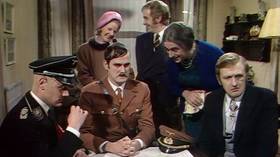
Chamberlain was now, opposite to the standard historic narrative, invested in battle and preparations started in earnest. He had purchased Britain very important time, because the nation was under no circumstances prepared for battle in 1938.
Proof from the time appears to point out Chamberlain knew precisely what he was doing. As he had stated in January 1938, “within the absence of any highly effective ally, and till our armaments are accomplished, we should modify our overseas coverage to our circumstances, and even bear with endurance and good humour actions which we must always wish to deal with in a really completely different trend.” Munich was a part of that holding place.
These phrases have been backed by motion. For instance, on the time of the Munich settlement, the Royal Air Drive (RAF) solely had twenty-five squadrons made up of out of date fighter planes. But, between Munich and the Battle of Britain in August 1940, Chamberlain had ensured that not solely was plane manufacturing elevated, however that the first focus was switched from the constructing of bombers to fighters. Thus, on the eve of the Battle of Britain, there have been fifty-eight squadrons on the disposal of Fighter Command, all outfitted with the brand new Hawker Hurricanes and Supermarine Spitfires.
Nonetheless, to a big extent, it was too little, too late. Britain and France had proven themselves to be weak and outplayed at Munich, thus when, belatedly, they reached out to the Soviets for an alliance to curtail German expansionism, Moscow was understandably reluctant. As one Soviet diplomat stated on the time, “We practically put our foot on the rotten plank. Now we’re going elsewhere.” That “elsewhere” was into the arms of Hitler and, in August 1939, the Molotov-Ribbentrop Pact was signed, which in impact sealed the destiny of Poland, no matter Chamberlain’s assure.
When Hitler’s Germany invaded Poland on September 1, 1939, Chamberlain was compelled to declare battle 48 hours later. Though he had ready for such an eventuality, Chamberlain was shattered. He admitted to the Home of Commons that “all the things I’ve labored for, all the things that I’ve hoped for, all the things that I’ve believed in throughout my public life, has crashed into ruins.” He had labored for peace, which was noble in itself, however as a substitute he bought battle.
Nonetheless, on the day battle was declared, Britain introduced the conscription of all ready males between 18 and 41. Evaluate this to the truth that, though Britain had gone to battle in 1914, conscription had not been launched till 1916. This was a newfound sense of urgency in wartime underneath Chamberlain.
Furthermore, one of many first issues Chamberlain did was to reconstruct his ministry, with a transfer which noticed the return of Winston Churchill because the First Lord of Admiralty. At a stroke, Chamberlain had resurrected Churchill’s ailing profession and introduced him in from the wilderness. Certainly, with out Chamberlain, a future Churchill premiership would have been, at greatest, unlikely.
Chamberlain proved a reliable chief throughout the eight months of relative inaction, christened the “Phoney Battle,” because it suited his administrative talents. He proved, nevertheless, a failure when the battle got here. Churchill was pushing behind the scenes for a proactive marketing campaign in Scandinavia. When he bought his want, it was a whole fiasco, and Chamberlain was the fall-guy.
In early April 1940, Chamberlain claimed that Hitler had “missed the bus,” but 9 days later, Germany invaded Denmark and Norway. The Churchill-inspired counter-offensive was a fiasco, and Allied forces carried out an embarrassing evacuation, leaving Norway to the mercy of the invading German divisions. In consequence, Chamberlain’s unwise assertion was thrown again in his face.
By no means earlier than, or since, has a Prime Minister been run out of workplace in such spectacular model. Certainly, the showdown within the Home of Commons – referred to as the Norway Debate – which led to Chamberlain’s fall, was most likely essentially the most vital in that chamber’s thousand-year historical past. The controversy concerning the Norway debacle befell between Could 7 and 9 of 1940, and Chamberlain was a lamb to the slaughter.
He was castigated for the failure by all sides. He was informed by considered one of his personal MPs, Leopold Amery (whose son was hanged after the battle for being a Nazi collaborator), “You’ve sat too lengthy right here for any good you may have been doing. Depart, I say, and allow us to have achieved with you. Within the title of God, go!” On Could 10, Chamberlain resigned, which was the identical day that the Wehrmacht marched into the Netherlands, Belgium, and France.
In some methods, Chamberlain fell from energy as a result of he adopted Churchill’s adventurism. Norway was Churchill’s plan, not Chamberlain’s, though, because the Prime Minister, the buck stopped with him. It’s considered one of historical past’s quirks that, whereas Churchill was sacked for his folly in Gallipoli in 1915, he was promoted to Prime Minister for his ill-advised exuberance in Norway in 1940.
Churchill introduced renewed vigour to the battle effort via his many iconic speeches. Who hasn’t heard the “blood, toil, tears and sweat” speech, or the barnstorming “we will battle on the seashores”? And when listening to them, whose hairs don’t stand on finish?
These speeches, and the hope they invoked, have been a welcome change from the dour seriousness of Chamberlain. However being dour and severe doesn’t essentially imply Chamberlain deserves to be condemned. Certainly, it could possibly be argued that Chamberlain was the chief Britain wanted within the years earlier than the battle, even when he was not the chief the nation required in wartime.
As soon as Churchill was in energy, Chamberlain continued to work with him within the Cupboard. It was agreed that Churchill would oversee the battle effort and Chamberlain would work on home points. The 2 males bought alongside cordially, and Chamberlain loved Churchill’s firm. There was not a touch that Churchill would later exit of his option to destroy Chamberlain’s repute as soon as the battle was over.
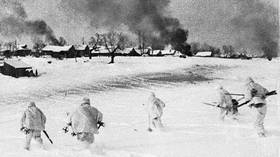
Sadly, Chamberlain didn’t see the complete results of his labours, as he died of bowel most cancers in November 1940. He did, nevertheless, reside lengthy sufficient to witness British Supermarine Spitfires and Hawker Hurricanes outperform the German Messerschmitt Bf 109 and win the Battle of Britain. Thanks, largely, to insurance policies he had pursued in 1939 and 1940.
Had the Battle of Britain been misplaced, it will have led to the initiation of Operation Sealion – the deliberate German invasion. If the Wehrmacht’s Panzers had made it to Britain’s shores, many agree that peace actions would have gathered tempo and Churchill would have been eliminated as Prime Minister. The consequence would have been Britain leaving the battle (or worse) and the Soviet Union would have been left to face Nazi Germany alone.
With Nazi Germany not combating a battle on two fronts, it might have put all its huge army sources into Operation Barbarossa in June 1941. Though round three million Axis forces invaded the Soviet Union in June 1941, there have been one other million males occupying the West, the Balkans, and combating in Africa on the time.
Fortunately, this didn’t occur, and Britain remained within the battle, protecting the Axis powers preoccupied within the West and in North Africa. It additionally allowed Britain to supply the Soviet Union with a considerable quantity of army materiel via the Arctic convoys and Iran.
That is under no circumstances to recommend the Soviets could not have defeated Germany ultimately, however the job would have been all of the harder with Britain out of the battle in 1941; and, partially, they have been capable of maintain out because of Chamberlain.
Nonetheless, writers and historians have traduced Chamberlain’s repute for the very best a part of eighty years. Earlier than he was even within the grave, in July 1940, Cato’s ‘Responsible Males’ was revealed and have become a best-seller, naming Chamberlan because the principal responsible man for appeasing Nazi Germany.
Chamberlain’s repute was additionally dragged via the mud by the person who changed him. Churchill, a wordsmith par excellence, wrote what’s extensively thought-about the official historical past of the battle and is meant to have stated, “Poor Neville will come badly out of historical past. I do know, I’ll write that historical past.” His six-volume ‘Second World Battle’ portrays Chamberlain as a well-meaning man, however simply fooled and hopelessly out of his depth when coping with Hitler.
Chamberlain has not fared significantly better in latest occasions. Hollywood movies, reminiscent of 2017’s ‘Darkest Hour’, have depicted him as weak and self-serving, keen, even in 1940, to capitulate to Hitler, ignoring the truth that Chamberlain had in truth inspired a reluctant King George to nominate Churchill as his successor.
Neville Chamberlain clearly had his faults. He was fussy, rigid, abrupt, and troublesome to work with. He was additionally a primary minister fitted to peacetime and under no circumstances a battle chief. Chamberlain was extra snug engaged on home points reminiscent of well being and housing than having to take care of unscrupulous dictators and pushy generals.
However what number of males actually can be as much as dealing with down Hitler? Considered one of Britain’s best peacetime prime ministers, H.H. Asquith, was discovered missing as a battle chief in 1916. He was then undermined and changed by Churchill’s mentor, David Lloyd George. Historical past does have a behavior of repeating itself.

Maybe, Neville Chamberlain’s repute deserves rehabilitation? Sure, within the speedy years following the battle there needed to be scapegoats and Chamberlain, who was not round to defend himself, fitted the invoice completely. Nonetheless, now that sufficient time has elapsed, possibly his profession will be considered in a much less harsh gentle?
Although the likes of Professor Ian Kershaw, who wrote a seminal two-volume biography of Hitler, imagine that Chamberlain’s “repute can’t be rescued,” maybe they’re incorrect? Netflix’s ‘Munich: The Fringe of Battle’ goes some option to salvaging his legacy. Jeremy Irons portrays Chamberlain as an honest and honourable man, who was keen to do all the things inside his energy to stop one other era of younger males being slaughtered on the battlefield.
Maybe this sympathetic efficiency will provoke a debate concerning the legacy of Neville Chamberlain; and one which works far past the lazy historic interpretations that have been posited within the speedy aftermath of the battle?
[ad_2]
Source link

